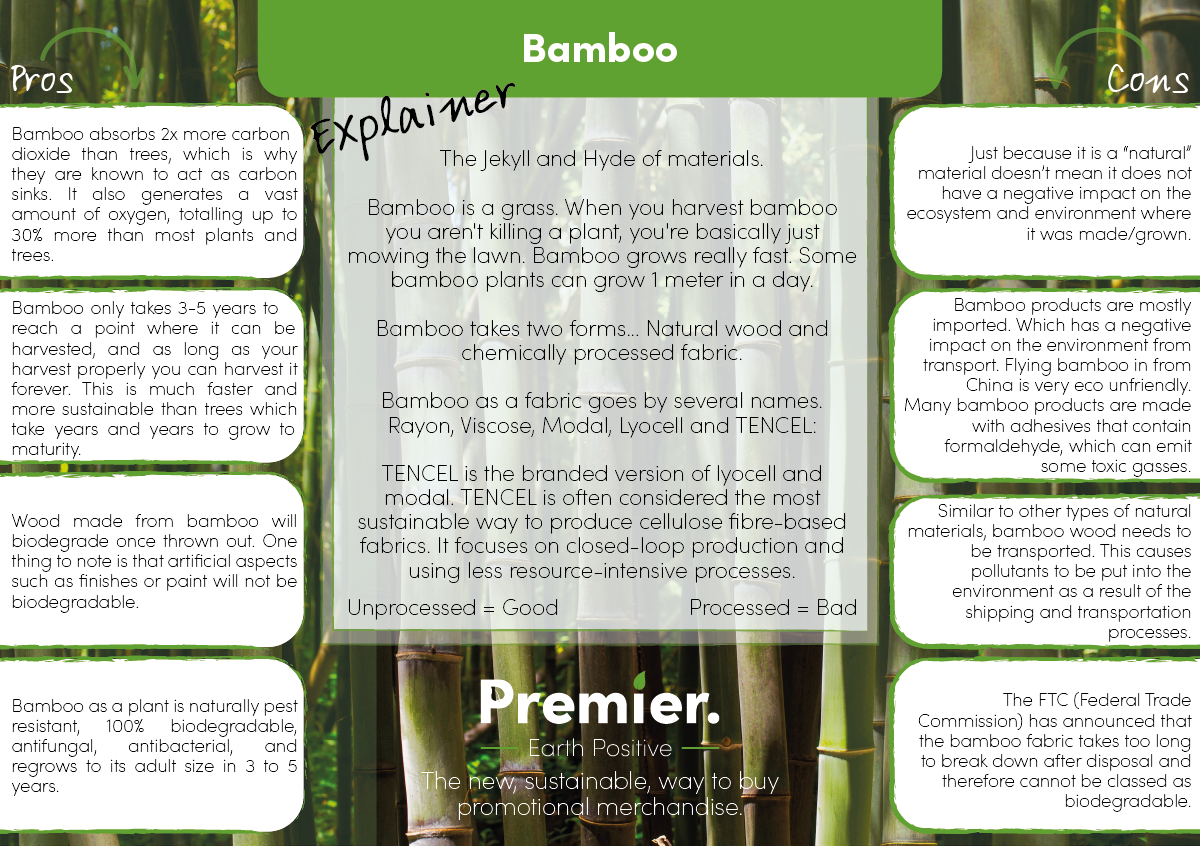

Pros
Bamboo absorbs 2x more carbon dioxide than trees, which is why they are known to act as carbon sinks. It also generates a vast amount of oxygen, totalling up to 30% more than most plants and trees.
Bamboo only takes 3-5 years to reach a point where it can be harvested, and as long as your harvest properly you can harvest it forever. This is much faster and more sustainable than trees which take years and years to grow to maturity.
Wood made from bamboo will biodegrade once thrown out. One thing to note is that artificial aspects
such as finishes or paint will not be
Bamboo
The Jekyll and Hyde of materials.
Bamboo is a grass. When you harvest bamboo you aren't killing a plant, you're basically just mowing the lawn. Bamboo grows really fast. Some bamboo plants can grow 1 meter in a day.Bamboo takes two forms… Natural wood and chemically processed fabric.
Bamboo as a fabric goes by several names. Rayon, Viscose, Modal, Lyocell and TENCEL:
TENCEL is the branded version of lyocell and modal. TENCEL is often considered the most sustainable way to produce cellulose fibre-based fabrics. It focuses on closed-loop production and using less resource-intensive processes.
Cons
Just because it is a “natural” material doesn’t mean it does not have a negative impact on the ecosystem and environment where
it was made/grown.
Bamboo products are mostly imported. Which has a negative impact on the environment from transport. Flying bamboo in from China is very eco unfriendly.
Many bamboo products are made with adhesives that contain formaldehyde, which can emit
some toxic gasses.
Similar to other types of natural materials, bamboo wood needs to be transported. This causes pollutants to be put into the
biodegradable.
Unprocessed = Good
Processde = Bad
environment as a result of the
shipping and transportation
processes.Bamboo as a plant is naturally pest resistant, 100% biodegradable, antifungal, antibacterial, and regrows to its adult size in 3 to 5 years.
The new, sustainable, way to buy promotional merchandise.The FTC (Federal Trade Commission) has announced that the bamboo fabric takes too long to break down after disposal and therefore cannot be classed as
biodegradable.









